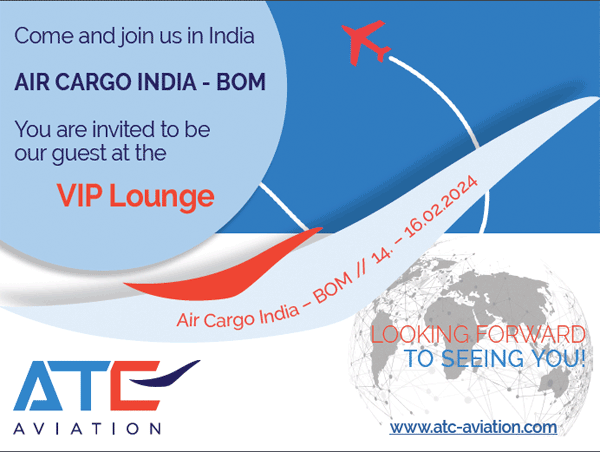
 |
 |
 #INTHEAIREVERYWHERE |
| Vol. 23 No. 8 | Thursday February 15, 2024 |
| |
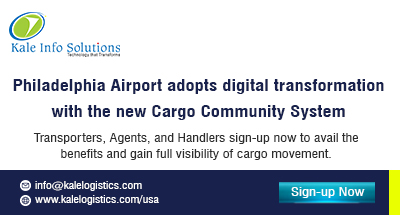 |
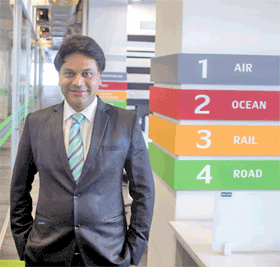 If you were asked to speak on “Digitalisation for efficiency, customer
delight and profitability”, other than having a field day on the advantages
created by technology what would be your dream talk?
If you were asked to speak on “Digitalisation for efficiency, customer
delight and profitability”, other than having a field day on the advantages
created by technology what would be your dream talk?Personally I would go straight to “customer delight”. This is the most imaginative and forward-looking approach I can think of, and the person who coined the expression is probably a genius. So this is what is happening to our good friend Amar More of Kale Logistics today February 15th. Amar is on a panel at AirCargo India addressing efficiency, customer delight and profitability. We took the opportunity to ask Amar a couple of questions off-line. In recent times we hear Amar More declared that “India is really creating a benchmark for the rest of the world in air cargo digitisation”. What Amar did not say, but we can do it without any fear of swanking, is that this is happening also as a consequence of the continuous activity of his company, Kale Logistics. The company has accompanied the process to modernise Indian airport logistics, this time working on its own mainland, besides myriad different initiatives in various countries, in particular in North America. Amar More declared recently in public that “the fact that each air cargo shipment is still accompanied by around 124 copies of paper, still staying on the ground for up to 85% of the total transportation time and even after 30+ years from the previous measurement taking the same amount of time to move internationally from one location to another (around 6 days); much more can be achieved using technology”, believing that “tremendous opportunities for the industry to improve in these areas by leveraging digitisation” exist. Kale Logistics is a first believer in digitalisation as a principal instrument of progress and development. I remember we held positive talks in FIATA with Kale Logistics many years ago during my term as DG, as Kale have always been strong supporters of our sector and logistics at large. In those times it was already clear that “inefficiencies lurk[ed] in connecting different stakeholders involved in the cargo business.” 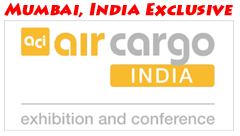 The
importance to focus on collaborative digital community systems around the
airports will come to the fore and the enormous impact on the efficiency
of air cargo movements will be explained in full detail in the mentioned
panel talk. Yet this is no fait-accompli: all this has to be organised,
adopted, implemented in conjunction with other stakeholder and policymakers.
This shows the enormity of the task Kale Logistics is facing without dwindling.
Many influential, organised and inspiring personalities have been working
on this stage for years and many of these operators are well known to FT
and, I expect, to Amar More. The
importance to focus on collaborative digital community systems around the
airports will come to the fore and the enormous impact on the efficiency
of air cargo movements will be explained in full detail in the mentioned
panel talk. Yet this is no fait-accompli: all this has to be organised,
adopted, implemented in conjunction with other stakeholder and policymakers.
This shows the enormity of the task Kale Logistics is facing without dwindling.
Many influential, organised and inspiring personalities have been working
on this stage for years and many of these operators are well known to FT
and, I expect, to Amar More. On the digitization of his own country, India, which is becoming more and more aware of the environment impact of human activities, Amar noted that “this digitisation will also help make the industry and the country move towards carbon neutrality. In our estimates, about 50,000 trees can be saved annually by eliminating unnecessary paperwork and about 25 bn tons of CO2 can be saved on an annual basis at country level through digitisation.” Reading the above, two questions came to mind; we then asked Amar More whether he would have time to send his comments despite his endless tasks in this season. He said “yes”. Hence, we have the opportunity to reflect on these issues with one of the principal actors of this digital transformation. It was an offer we could not refuse. FT: We come from a history of hopes for national and/or international cargo community platforms both in air freight and in ocean cargo. In the meantime, some remarkable examples have been created and we register Kale’s important contribution in this direction, but . . . There is no universal solution and we still cannot see last century’s dreams come to fruition across global supply chains. Instead of dreaming, Kale has worked very hard in the last few years and managed to provide effective solutions in a growing number of countries. Is your recipe based on the adoption of common standards (which? e.g. IATA’s, WCO’s, UNCEFACT’s etc.) or a hybrid, more flexible approach? If this trend continues you will probably become, if you are not yet, the heavyweight of digitization in global airfreight; which areas are more difficult to cover in this process and what would be your suggestions to bridge the gap? AM: This is a great question. Connecting a community through digital becomes easier if the platforms support the common industry standards. If you want to make it simple for the stakeholders to connect with the other supply chain partners, then you have to minimise the changes they would need to do to their internal systems. Most systems in the industry support the UNCEFACT, WCO, IATA standards and our platform is perfectly capable of accepting as well as sending electronic data to different stakeholder systems. However, there are still a lot of areas where the proliferation of standards doesn’t exist (e.g. terminal charges payments information flowing from the handler’s systems into the forwarder’s system) and in those places we had to create simple APIs to facilitate data exchanges. We realised very early in our lifecycle that to be effective in community creation and adoption we need to simplify and simplify. That is the only recipe. So the stakeholders today can benefit from our approach by using simple APIs, industry standard EDI messages, simple excel sheet uploads, using portals if they prefer that method and finally innovations such as .pdf to EDI converters wherein the SME forwarders just send or upload simple .pdf files on our platform and using Optical Character Recognition (OCR) and Machine Learning (ML), we convert those into electronic data that can be processed through the platform. The connectivity between exporter/importer and forwarder is still an underserved area and we have that functionality in our platform to facilitate this important digitisation. FT: There
is much talk, and there has been for a number of years, about greening
our transport offer. On the ground we almost see the opposite. There is
some remarkable opposition to legislative measures in this direction.
In many areas of the world there is almost a feeling of resignation that
nothing can be done. From your point of view, you stated in more than
one occasion that digitisation can actually afford significant progress
in providing services that are more compliant with sustainability. Considering
your approach, would you be able to provide some examples where good business
practice goes hand in hand with sustainability performance indicators?
|
 |
|
|
|
The big party for “Fat Tuesday”, Mardi Gras in New Orleans and in other places in USA and around the world was yesterday. Yesterday Ash Wednesday began Lent that ends with the celebration of Easter Sunday March 31, 2024. Since Larry Johnson retired from Louis Armstrong New Orleans International Airport - MSY, we don’t hear much about cargo down there anymore, but from early in our experience we followed this pioneering cargo marketing man and his airport and then by association always the Mardi Gras celebration. Mardi Gras “helped save New Orleans,” said the writer Errol LaBorde in an article published in New Orleans Magazine titled “Why There Will Always Be Mardi Gras.” “Several times,” Laborde opined, "we have been warned by mayors that because of some civic crisis, the upcoming Mardi Gras might be cancelled. Citizens were told that during the 1979 police strike; in the 1990s in the wake of a controversial Civil Rights ordinance; in 2006 after Katrina, when COVID-19 hit in 2020. “There should be a permanent sign over every door in the mayor’s office that reads: MARDI GRAS CANNOT BE CANCELLED —EVER. This is more than civic boosterism but a statement of historic fact.” Mardi Gras, Christmas and Easter, are dates on the Gregorian calendar enshrined since 1582. Mardi Gras is a secular holiday, but it's tied to Christian and Roman Catholic traditions. It always falls the day before Ash Wednesday and is seen as a final day of feasting and revelry before the solemnity of Lent. This year Bourbon Street in the French Quarter of old New Orleans was cheek to jowl filled with thousands of revelers as a local TV station caught the mood of a massive jubilant crowd: “I was raised Catholic, so tomorrow's for repenting but today is for partying,” Bethany Kraft, a regular visitor from Mobile, Alabama, said as she waited with her husband Alex for the big parade. For a real love affair with New Orleans, click here. |
 |
If
You Missed Any Of The Previous 3 Issues Of FlyingTypers Access complete issue by clicking on issue icon or Access specific articles by clicking on article title |
||
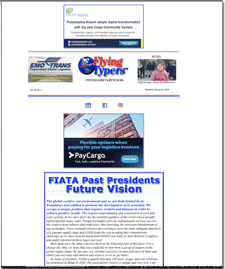 Vol. 23 No. 5 FIATA Past Presidents Future Vision Chuckles for February 6, 2024 ATC @ aircargo India Tata Wistron India Takeover |
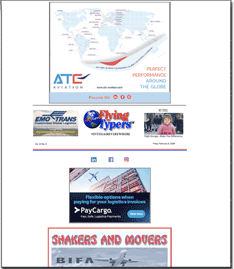 Vol. 23 No. 6 Shakers & Movers—Year of The Dragon Chuckles for February 9, 2024 QR Cargo Freshens February Year Of The Dragon In The Wings Beatles Day At JFK |
|
Publisher-Geoffrey Arend
• Managing Editor-Flossie Arend • Editor Emeritus-Richard
Malkin Film Editor-Ralph Arend • Special Commentaries Editor-Bob Rogers • Special Assignments-Sabiha Arend, Emily Arend |
Send comments and news to geoffrey@aircargonews.com
|